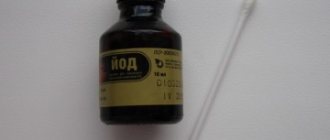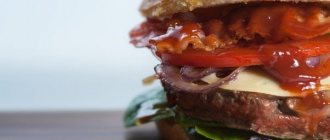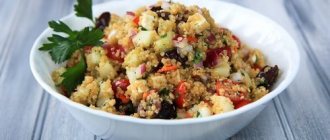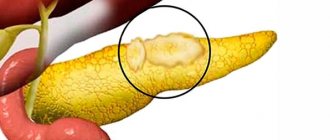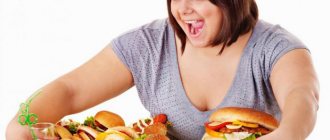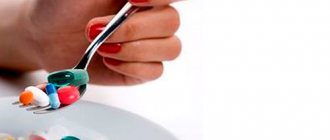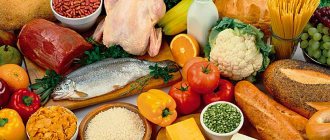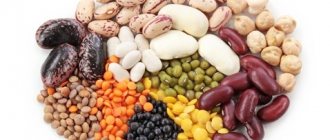List of foods containing iodine for the thyroid gland
And these pathological conditions can be prevented if iodine-containing foods for the thyroid gland are introduced into the diet in advance.
What to do if you have iodine deficiency
Iodine deficiency #8212; the first warning sign of possible thyroid diseases. Even then, doctors often prescribe its medications and recommend increasing the amount of foods with iodine in the diet.
How much iodine does a person need per day? It depends on his age.
Daily requirement
A healthy person needs the following amount of iodine:
- for infants 50 mcg,
- for children aged 2-6 years - 90 mcg,
- 7-12 years - 120 mcg,
- for an adult - 150 mcg,
- pregnant and lactating women #8212; 200 mcg.
There is another drug #8212; Amyloidone. In fact, it is ordinary iodine combined with starch, popularly called #171;blue iodine#187; for its intense blue color. It should also be used under the supervision of an endocrinologist.
If there is a deficiency of this microelement or thyroid disease, the daily requirement will increase, sometimes even several times. You can adjust your diet after consulting a doctor.
Signs of iodine deficiency
A person himself may suspect iodine deficiency if he discovers such seemingly insignificant symptoms:
If you notice such signs, you can cure it in the initial stages only by slightly adjusting your diet, introducing more
In our latitudes, the list of iodine-containing products for the thyroid gland is quite extensive, but there are products #8212; real leaders in iodine content.
Top 10 foods that contain a lot of iodine
Products containing iodine for the thyroid gland are familiar and familiar to our body.
First of all, the one that is sold in all supermarkets in areas where there is almost no water #8212; iodized salt. It should be consumed following certain rules:
- add salt to already prepared dishes and do not heat it, otherwise the iodine in it will disintegrate under the influence of temperature
- should not be used in large quantities, especially for those who have elevated iodine levels in the body
Other iodine-rich foods
- Any products of marine origin, especially seaweed
- persimmon #8212; a real fruit of life, useful for the prevention of oncology, normalizes blood pressure, helps with urolithiasis, and cleanses the intestines. One fruit contains 10% of the daily value
- Buckwheat and oats (except rolled oats, iodine is contained in the shells of the grains)
- Cranberry #8212; even a serving of cranberry dessert can contain almost its daily dose.
- Broccoli, white cabbage
- Various nuts, seeds
- Poultry meat, especially turkey #8212; it contains many other useful substances, B vitamins, magnesium, phosphorus
- Dairy #8212; A glass of fresh milk contains about a third of the daily requirement
- Boiled chicken eggs
- Prunes #8212; 5-7 berries contain 10% of the daily dose. They are best consumed raw.
There are also foods that lack this trace element, but which help it be absorbed from other foods. They are also recommended to be included in the diet.
You can see what foods contain iodine in the table:
Sushi and rolls are also very healthy, especially if they include seaweed.
So such a simple and harmless remedy as regulating your diet can save you from many problems. But there are also things that are strictly prohibited in the diet if you have iodine deficiency.
- any kind of alcohol
- confectionery pastries
- sausages, marinades, spices.
These products remove iodine from the body even more, which aggravates the patient’s condition.
Iodine-containing products for the thyroid gland
About 9/10 of iodine comes into the body through food - which is why it is necessary to eat a balanced diet, consuming foods with sufficient iodine content.
To avoid the problem of iodine deficiency or to recover from existing thyroid diseases, consume the following foods:
- all types of legumes;
- Champignon;
- seafood;
- iodine-containing salt;
- Cod liver;
- chicken and quail eggs;
- greenery;
- processed cheeses;
- pork and beef;
- buckwheat;
- vegetable crops (carrots, cabbage, beets);
- oatmeal.
There is no need to consume a lot of foods with a high percentage of iodine - 2-3 items from the list will be enough. In this case, you can change your diet daily.
Advice : if you choose a fish menu, remember: it is enough to eat fish once a day, because it contains much more iodine than other foods.
Iodine-containing preparations for the thyroid gland. List of 12 essential products.
The thyroid gland will not function stably in a state of iodine deficiency.
The largest percentage of iodine is contained in:
- Red caviar;
- persimmon (children love its sweet taste);
- seaweed (100 grams covers the daily requirement of iodine);
- cod liver (in addition to iodine, includes many vitamins, as well as micro- and macroelements);
- buckwheat grain;
- cruciferous vegetables;
- Brazil nuts (rich in selenium; only 3 nuts can transform thyroxine into T-3 and promote the production of glutathione, which reduces thyroid antibodies);
- gluten (helps produce antibodies);
- seafood (promote the formation of thyroxine, the production of hormones, and normalize thyroid function);
- goji berries (antioxidants and flavonoids contained in them help suppress free radicals and reduce stress, which usually provokes thyroid problems);
- poppy seeds (zinc and iron contained in them activate the pituitary gland, which promotes the extraction of thyroid-stimulating hormones. These drugs affect the level of thyroxine);
- chlorophyll drink (removes heavy metals that slow down the production of hormones in the body).
Diet
The diet recommended before treatment of the thyroid gland, used in the postoperative period, as well as a diet intended for prevention, has 5 rules:
- use iodine-containing foods as much as possible in your diet;
- be sure to use products containing elements that promote the absorption of iodine, otherwise step 1 may not bring any effect;
- Use only iodized salt as salt, but you need to salt the dish in a plate, not in a pan, since long-term heat treatment destroys all the benefits of iodized salt;
- exclude from the diet all preservatives, as well as foods that interfere with the absorption and accumulation of iodine;
- do not try to compensate for the lack of iodine using drops of iodine tincture for disinfection and external use, since even 1 drop of iodine will lead to burns of the mucous membrane, overdose and serious consequences.
It's no secret that the first place in iodine content is occupied by seafood, seaweed, all types of fish, shellfish, shrimp, and oysters. When consuming, you need to remember that you cannot use canned seafood. In addition to seafood, foods containing selenium and potassium help saturate the body with iodine. These are nuts and mushrooms.
The list of iodine-containing fruits is endless, but the most useful ones are bananas and grapes, as well as persimmons, strawberries and all citrus fruits.
Meat, like fruit, is suitable for any kind of meat, even fatty ones, prepared in any way. If you have iodine deficiency, meat should be on the table at least once a day. This is due to the fact that meat products are rich in cholesterol, which unusually stimulates the mechanisms of iodine absorption. For the same reason, eggs, especially the yolk, will bring great benefits. And the legend about the dangers of foods containing cholesterol has long been debunked by modern science as unfounded.
The most dangerous foods are those that contain a lot of zinc. For this reason, a diet with a lack of iodine is forced to prohibit white cabbage, broccoli, and potatoes. Zinc is extremely harmful if there is a lack of iodine; it actually blocks it in the body, so you can use cereals and porridges as a side dish.
Harmful products
Endocrinologists talk about a balanced and proper diet for a reason. According to WHO statistics, over 670 million people in the world suffer from various forms of hyperthyroidism, and more than 1.7 billion are at risk of developing pathologies of the endocrine system. Almost 70% of this number love and eat junk food daily. This is a reason to think!
What foods should you avoid if you have thyroid problems?
- Sugar. All popular and cheap foods contain sugar in incredible quantities. These are sweet and carbonated drinks, pastries, cakes, candies and more. There is more harm from such food than good. Autoimmune diseases and diabetes are caused by uncontrolled consumption of sweets. With such a diet, the level of hormones decreases, almost all systems are overloaded, and the body does not perceive insulin.
- Fried and fatty foods contain trans fats that are unhealthy. If you like to eat fried foods, try to add more greens, fish and seaweed to your diet. If there are obvious problems with the endocrine system, you should reduce or even eliminate the consumption of fried foods, because it reduces the production of hormones T3 and T4.
- Gluten is a substance (gluten) found in cereal plants and causes great harm to a healthy body. Foods high in gluten have been linked to autoimmune disorders such as Addison's disease, type 1 diabetes, rheumatoid arthritis and hypothyroidism. Gluten is found in baked goods, wheat bread made from premium flour, etc.
- Convenience foods, fast food, preservatives - all this food cannot be called beneficial for human health and the endocrine system.
As for alcohol, coffee, cigarettes and strong tea, they should also be excluded from the diet if there are problems with the production of T3 and T4 hormones. A healthy person can afford to drink coffee or wine in moderation, but with pathologies of the immune system, such “weaknesses” will lead to serious complications.
Grocery list

Now that you know everything you need to know about reasonable iodine consumption, I’m ready to present to your attention a list of iodine-containing foods. We take the calculation per 100 g of product:
- The largest amount of this substance was found in seaweed - over 500 mcg.
- In second place are varieties of sea fish. Here the content ranges from 100 to 350 mcg. Most of the substance is found in salmon, flounder, sea bass and herring.
- In freshwater fish this amount is much less. Only 70-80 mcg.
- Crabs, squid, oysters, mussels and shrimp are also rich in microelements. Content – 120-150 mcg.
- The content of this substance is much lower in milk and champignons - 17 mcg.
- In beef, cheese and spinach - 11-12 mcg.
- Beets, carrots and cabbage contain only up to 7 mcg of iodine.
Based on the short list of products, we can conclude that marine life is most saturated with iodine. That is why nutritionists recommend having “fish days” once or twice a week, so you can always be sure that you are getting enough valuable micronutrients.
Subscribe to the blog. See you!
Natalya Bryantseva
Subscribe to blog news!
Iodine deficiency
The body makes it quite clear when it lacks this or that substance to function properly. As for iodine, the symptoms of its deficiency are as follows:
- Inhibition of mental activity.
- Poor appetite.
- Memory impairment.
- Irritability and tearfulness.
- Brittleness and splitting of nails.
- Rashes and pimples on the body and face.
- Hormonal imbalances.
- Depression, feeling of constant fatigue and apathy.
- Menstrual irregularities.
- Decreased immunity, increased susceptibility to viral diseases.
- Swelling.
- Hair loss.
- Deterioration of vision.
- Often, iodine deficiency results in many diseases for the thyroid gland, the most typical of which is the formation of goiter.
For those for whom it is important to acquire lightness and cheerfulness; accept and love age-related changes, increase sensuality of perception; raise your feminine energy; learn to recover using natural means - training course “Women’s happiness: healing the reproductive and hormonal systems according to Ayurveda”
Causes and symptoms of iodine deficiency
Microelement deficiency occurs due to poor nutrition: a person consumes few foods containing iodine. Seaweed, squid, crabs, octopus, shrimp, mussels, mozzarella cheese are products that do not often appear on many people's tables. Some items have a high cost, which does not allow for frequent consumption of seafood delicacies.
Another reason for iodine deficiency is lack of awareness about the benefits of certain foods. Many people do not know that iodine is found not only in expensive seafood, but also in affordable items: strawberries, cow's milk, seaweed, eggs, natural yogurt.
Other reasons:
- lack of competent and timely iodine prophylaxis in regions with low microelement content in water and soil,
- taking medications that interfere with iodine absorption,
- increased background radiation,
- excessive reaction of the body to various types of irritants and traditional allergens,
- increased consumption of foods with components that interfere with the absorption of iodine: calcium, iron, chlorine, bromine, cobalt.
Signs of iodine deficiency:
- obesity,
- anxiety,
- tachycardia,
- brittleness and dryness of hair,
- panic attacks,
- lethargy, decreased performance,
- swelling of the legs and arms,
- combination of arrhythmia with weak pulse,
- high cholesterol concentration,
- decreased level of intelligence and concentration,
- hypothyroidism In severe cases, cretinism develops in children, myxedema in adult patients,
- bowel disorders (constipation),
- feeling of cold.
Foods that contain iodine
To get iodine into the body, it is advisable to saturate your diet with foods that are a priority for residents of coastal zones: algae, sea fish, seafood. A serving of brown seaweed (fucus or kelp) is enough to provide your daily dose of iodine. There is a lot of iodine in cod liver and fish oil. 100 g of seafood or sea fish contain up to 200 mcg of the element. In addition, apples and their seeds, feijoa, persimmons, potatoes, spinach, sorrel, cheeses and dairy products are rich in iodine.
Many people solve the problem of iodine deficiency by using iodized salt or special salt-free seasonings containing brown seaweed. Usually, a third of a teaspoon of such seasonings is enough to meet the daily iodine requirement. The choice of such seasonings today is huge; you can choose your preferred set of spices and herbs for cooking meat, fish, and vegetables.
Table of products containing iodine with the amount per 100 grams
| Cod liver | 350 |
| Haddock | 240 |
| Salmon, flounder | 200 |
| Sea bass | 145 |
| Cod | 130 |
| Herring | 90 |
| Pink salmon, chum salmon | 50 |
| Shrimps | 190 |
| Oysters | 60 |
| Pork | 17 |
| Beef | 12 |
| Milk | 15-20 |
| Cheeses | 11 |
| Butter | 10 |
| Apples with seeds | 70 |
| Feijoa | 70 |
| Persimmon | 30 |
| Spinach | 20 |
| Beet | 7 |
| Potato | 7 |
| Carrot | 5 |
| Sorrel | 3 |
| Fish fat | 700 |
| Sea kale | 150-200 |
| Chicken yolk | 12-25 |
Iodine evaporates at high temperatures, so it is recommended not to fry foods, but to stew or boil them, and add seasonings to an already prepared dish immediately before consumption. However, even in these cases, no more than half of the iodine value indicated in the table remains in the products, however, this amount is absorbed almost completely.
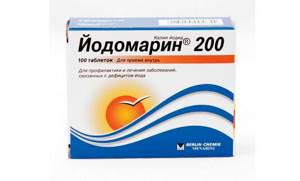
Vitamin-mineral complexes and dietary supplements containing iodine
One of the easiest ways to increase iodine intake is to use special dietary supplements. Thus, fucus and kelp in capsules are popular, containing approximately 50 mcg of iodine in one capsule. To prevent iodine deficiency, drugs such as Iodomarin, Antistrumin, Iodide, Potassium Iodide are often prescribed.
In vitamin-mineral complexes popular among athletes, the iodine content is as follows:
- Iodomarin - Iodine preparation. Used for the prevention and treatment of thyroid diseases.
- High Mineral Complex from the German manufacturer Weider contains 150 mcg of iodine.
- The same amount of microelement is found in the Opti-men complexes from Optimum Nutrition and ActiveSport from the manufacturer MHP.
- The Russian complex Artromax satisfies the daily need for iodine.
- The dietary supplement CigaPan (Cigapan) is increasingly gaining popularity among athletes, because it contains most microelements, including iodine, which are especially necessary during active physical activity in the amount of their daily requirement.
- 200 mcg of iodine per OrangeTriad complex capsule.
The decision to use additional drugs containing iodine should be made in conjunction with a competent specialist, basing the choice on the athlete's diet and place of residence. You should also carefully select the dosage of the microelement.
Be sure to pay attention to the presence and content of iodine in vitamin-mineral complexes, which are taken to increase the intake of other minerals or vitamins into the body. An excess of iodine leads to a sharp decrease in body weight, disruption of normal activity and vital functions of the body.
Be attentive to your health!
Top 7 useful products
To maintain proper functioning of the thyroid gland and prevent hypothyroidism, it is necessary to include in the diet foods containing iodine, selenium, zinc and other useful vitamins and microelements.
Below is a list of the most effective and useful products.
Iodized salt
Iodized salt is regular table salt with added iodine. In such a compound, the microelement does not oxidize under the influence of oxygen. The product gained wide popularity in the United States in the mid-60s.
Scientists recommend using iodized salt instead of regular salt, adding it to various dishes and drinks. The maximum daily dose is about 5-6 g.
Iodized salt is necessary for the thyroid gland to replenish iodine deficiency and ensure the synthesis of hormones.
Green tea
One study conducted in 2021 found a positive relationship between regular consumption of green tea (at least 2 cups per day) and the level of thyroid hormones (thyroxine, triiodothyronine).
With the normalization of hormonal levels, all the resulting disorders caused by hypothyroidism were quickly compensated.
It is recommended to take green tea on a regular basis to restore the secretion of thyroid hormones.
Sea fish
Many seafood contain enormous amounts of iodine. The most valuable in this regard are sturgeon and cod (especially cod liver), 100 g of which contain about 5-7 daily iodine requirements.
In addition, 1 serving of almost any other fish (100 g) replenishes 70% of the body's daily zinc requirement.
As a result of the complex effect on the thyroid gland, an improvement in the clinical condition is observed. Positive dynamics are recorded even in autoimmune diseases (Hashimoto's thyroiditis).
Fish must be included in the diet of all people suffering from hypothyroidism.
Dairy
It has been proven that dairy products can compensate for conditions accompanied by even clinically pronounced symptoms of iodine deficiency.
For example, 200 ml of cow's milk contains up to 5% of the daily value of iodine, and also provides the body with calcium and vitamin D, which are essential for balanced bone growth and maintaining its strength.
It is important to note that in skim milk the iodine concentration is 10-15% lower. As an alternative to cow's milk, you can use sheep's or goat's milk, which can contain iodine levels of up to 400% and 900% of the daily value.
Milk not only replenishes iodine deficiency, but also helps normalize metabolism.
Meat
Livestock products are widely valued for their high zinc content. For example, 100 g of beef gives the body 33% of the daily requirement of a microelement, bear meat - 80-95%.
Meat products are also the main source of selenium. The percentage of the component in the finished product directly depends on the quality of the animals on the farms.
In order to avoid a lack of zinc and selenium, you should eat more meat products.
Oysters
American scientists have found that bivalves (100 g) are able to compensate for the lack of zinc (3 daily requirements) and iodine (300% of the daily requirement) in the diet.
It is recommended to consume oysters on a regular basis (1-2 times a week), even for healthy individuals.
Systematic consumption of oysters provides reliable prevention of autoimmune disorders of the thyroid gland, improves the functioning of the adrenal glands, and reduces the severity of disorders of the central nervous system, which are extremely common in the presence of hypothyroidism.
Oysters are recommended for regular consumption by persons with signs of thyroid deficiency due to the extremely high content of zinc and iodine.
Eggs
Research shows that eggs are rich in selenium, but its bioavailability is low (about 20%). The microelement content strongly depends on the growing conditions of the grain on which the birds were fed.
You should eat at least 3-5 eggs per week (in the form of omelettes or soft-boiled eggs) to replenish selenium in the human body.
At the same time, to treat mild to moderate hypothyroidism, you need to eat 1-2 eggs per day.
Eggs should be an integral component of food due to the presence of selenium in large quantities.
Signs of iodine deficiency
Symptoms of iodine deficiency can have varying degrees of severity, which depend on several factors. But the main symptoms appear with moderate iodine deficiency.
Chronic fatigue is characterized by:
- Loss of strength;
- Lethargy;
- Drowsiness and apathy.
- Persistent fatigue that does not go away after rest.
The cause of chronic fatigue is a decrease in the concentration of thyroid hormones, which provides the body with the necessary energy. When the first sign appears, you need to consult a doctor and get tested for the level of thyroid-stimulating hormones.
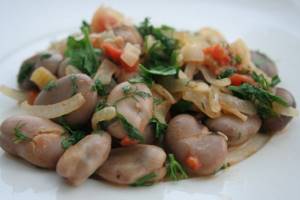
Immunodeficiency manifests itself:
- Frequent recurrences of colds;
- Fungal and parasitic diseases;
- Slow tissue regeneration of wounds and cuts.
Immunodeficiency caused by iodine deficiency cannot be treated with immunomodulators, and restorative measures do not give a positive result.
Only taking iodine supplements and eating iodine-containing foods can restore the normal functioning of the immune system.
Symptoms of iodine deficiency:
Edema
People who are unaware that they suffer from iodine deficiency do not pay attention to this symptom. Swelling may be located under the eyes, legs or arms
Taking diuretics eliminates the symptom for a short time; with symptomatic treatment, the water-salt balance is disturbed.
Menstrual irregularities in women and decreased sexual activity in men. This condition is dangerous due to the occurrence of infertility and the onset of premature menopause. If iodine deficiency occurs during pregnancy, it can lead to spontaneous abortion and lead to the development of neurological pathologies in the fetus.
Anemia. In the mature stage of hypothyroidism, iron deficiency anemia develops, which is caused by a decrease in metabolic activity. Anemia is of an unexpressed nature and manifests itself as tinnitus, pallor of the skin, and weakness. Diagnosis of iron deficiency anemia is possible only through laboratory tests.
Obesity. A serious symptom of iodine deficiency is uncontrolled weight gain. Excess weight is caused by edema, which is caused by metabolic disorders in the body. The connective tissue becomes susceptible to fluid, resulting in thickened skin, swollen tongue and lips, and a puffy face. In severe cases, hoarseness of the voice, decreased hearing, and impaired nasal breathing are observed.
Hypotension. People with severe hypothyroidism experience a malfunction of the cardiovascular system. A complication of hypothyroidism is manifested by hypotension, which is characterized by dizziness, headache, shortness of breath, increased fatigue, tachycardia, sweating, and decreased mental performance.
Violation of the emotional background. Passivity, apathy, bad mood, dejection and negative views.
A decrease in iodine levels in the blood affects brain performance.
As a result of metabolic disturbances due to hypothyroidism, the following decreases:
- Ability to remember dates and events;
- Engage in creative activities;
- Solve difficult problems.
If signs of deficiency appear, you should seek qualified help for diagnosis and treatment.
It is important to remember that the development of the disease can be prevented
A little theory about the role of hormones
Hormones produced by the thyroid gland are the main regulators of all metabolic processes in the human body. The division and growth of new cells, energy production, and even maintaining temperature at the required level depend on them.
Thyroid hormones are responsible for oxygen consumption by cells, oxidation and the quantitative ratio of free radicals in the blood.
It is the thyroid hormones that are responsible for the development and growth of the body, and if they are deficient in childhood, growth stops and various pathological conditions arise. Their deficiency during pregnancy can lead to dementia in the unborn child.
The ability to resist diseases also largely depends on thyroid hormones, because they have a huge impact on human immunity.
The nervous and vegetative-vascular systems also depend on a sufficient amount of thyroid hormones.
Chronic fatigue, nervousness and constant stress can occur precisely from a lack of iodine, and as a result, a lack of thyroid hormones.
Principles of dietary nutrition for thyroid diseases
In each individual case of thyroid disease, you need to eat according to the following principles. The basis of such a proper diet includes vegetarian and iodine-containing foods. If you are concerned about endemic goiter, eat foods with a high iodine content, exclude goitrogenic foods such as broccoli, cauliflower, cabbage, and soybeans. Thyroiditis and neoplasms on the thyroid gland, on the contrary, require the exclusion of foods with a high iodine content, as well as goitrogenic products. In case of hypothyroidism, it is necessary to reduce the amount of fats and carbohydrates in your diet and increase the amount of proteins, avoid fatty and oily foods that contain cholesterol and salt.
Products that form the basis of the diet

Seafood. A proper diet for the thyroid gland necessarily includes different types of fish, shrimp and other foods. Seaweed salads are also recommended. Foods rich in microelements. A diet for thyroid disease involves eating rose hips, lingonberries, blueberries, gooseberries, blackberries, strawberries, raspberries and other healthy berries. Vegetables such as pumpkin, eggplant, black radish, turnips, and beets are also rich in microelements. Fresh juices are included in the diet of fruits and vegetables. Cauliflower, Brussels sprouts and even dandelions are used for salads. Teas infused with herbs. For brewing tea, herbal leaves, which can be purchased at pharmacies, are useful. In case of a sudden change in diet, you need to use plants such as ginseng, Rhodiola rosea, and other herbs that will help you adapt to the new diet. Cleansing products. A diet for the thyroid gland includes dishes made from products that promote natural cleansing of the body, removing toxins, for example, black radish, celery, parsnips and garlic. Porridge. The ideal dish for a dietary diet is any type of porridge, pilaf, to which you can add butter if desired. Cereals and legumes. Simple cereal products form the basis of proper nutrition: wheat, oats, barley. The diet also includes muesli, which can be prepared for breakfast and more. From legumes, it is recommended to add beans, peas and beans to your daily diet. It is useful to add some sprouted beans, turnips, and radishes to salads. Honey. For sweets, you can eat honey in the amount of a couple of tablespoons. Nuts and forest herbs. When following a diet, nuts are especially important, because they help cleanse the blood, for example, walnuts and hazelnuts. It’s not difficult to find nuts in bulk in stores: almonds, cashews, sesame. You can add various seeds, for example, flax, sunflower and poppy seeds. Particular attention should be paid to well-known medicinal herbs
In spring, chestnut flowers can be consumed. Purified water Maintaining water balance is also important during your diet. If possible, use filtered or specially purified water. Among other products, you can add bread, but only from wholemeal flour, special mayonnaise, and vegetable oils.
Foods that should be excluded from the diet

Eliminate sweets from your diet!
- Meat. You should avoid meat products, various sausages, frankfurters, and smoked meats.
- Animal fats. Margarine and artificial fats are harmful.
- Products with high sugar content - sweets, cakes, chocolate.
- Salt. It is not recommended to add salt to any dishes or eat salted fish.
- Soy. In some cases of illness, this type of product is allowed, but soybeans absorb thyroid hormones.
- "Harmful" drinks. Containing artificial ingredients and a lot of sugar, coffee, cocoa, and other well-known drinks containing dyes.
- Dishes fried in oil. All foods must be stewed or steamed.
- Smoked meats, pickled vegetables and dried fruits.
- Canned food of any type.
- Milk. Only natural milk is allowed to be added to the diet.
- Boiled eggs.
- Baked goods made from regular flour.
- Seasonings, spicy foods.
To maintain proper nutrition, it is recommended to avoid alcohol and medications. It is necessary to add more foods containing vitamins A and E to the diet. It will also not be superfluous to use the technique of fractional nutrition. After taking medications to restore the thyroid gland, you need to be especially careful with your diet.
Products containing iodine
This important microelement enters the human body mainly with plant foods (64%), followed by animal foods (32%) and third by water (4%).
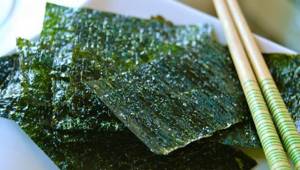
Dried seaweed is the richest food in iodine.
So, where is iodine contained, table:
| The product's name | Peculiarities | Iodine content (µg/100 g) | Percent Daily Value for an Adult |
| Potatoes (baked) | Be sure to bake with the skin on, since, for example, puree contains much less iodine | 60 | 40 |
| Cranberry (pie) | It also contains quite a lot of vitamin C. | 400 | 270 |
| Prunes | A serving of this dried fruit also contains fiber, vitamins K and A, and boron ions. | 13 | 9 |
| Cod | This fish is very tasty and low in fat. | 116 | 77 |
| Lobster | In terms of taste, it is considered the king among seafood | 100 | 66 |
| Shrimps | Storehouse of calcium and protein | 35 | 23 |
| Tuna (canned) | Also rich in proteins, iron salts and vitamin D | 20 | 13 |
| Dried seaweed | Sold in 7 gram packs | 64285 | 41785 |
| Turkey breast (baked) | Contains B vitamins, potassium, phosphorus | 35 | 23 |
| Milk | Supplying the body with vitamin D and calcium | 28 | 18 |
| Egg (boiled) | Contains zinc, calcium, antioxidants, vitamins D and A | 24 | 15 |
| Iodized salt | You shouldn’t over-salt your dishes in pursuit of iodine; it will do more harm than good. | 7 700 | 5 331 |
| Himalayan salt (halite) | It is pink in color and rich in many other microelements. It is not recommended to consume more than half a gram of the substance per day | 50 000 | 30 000 |
| Strawberry | Tasty and rich in microelements | 13 | 9 |
| Sea beans | The product also contains large quantities of amino acids, copper, calcium, potassium and folic acid. | 32 | 22 |
| White bread | It should be consumed in moderation as it contains many calories. | 45 | 30 |
Based on this information, you can choose a menu for yourself from available products that contain a sufficient amount of iodine.
What does iodine not combine with?
If the doctor said that there is an iodine deficiency in your body, then you are strictly prohibited from alcohol in any form, sweet pastries, various spices, any marinades and sausage products. These products provoke even greater removal of iodine from the body, and, consequently, your condition will get worse.
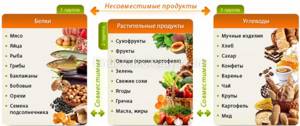
It is impossible to cancel chemical reactions in principle, and even more so they cannot be canceled when they occur in the human body. Some foods simply displace iodine. The substances they contain react with iodine, and the substance that is ultimately formed cannot compensate for the iodine deficiency in the body. These substances include fluorine, bromine and chlorine. Therefore, if you drink tap water (chlorinated), the amount of iodine in your body becomes significantly less, and if you drink bottled water, then you are advised to carefully read its composition and choose water that does not contain fluorine and bromine.
With iodine deficiency, a disease called hypothyroidism develops. For this disease, it is useful to eat oranges, bananas, honey, vegetable oil, and chicken egg whites. Despite the fact that these products contain either no iodine at all or a small amount, they have a very positive effect on the condition of the thyroid gland in hypothyroidism.
Today, on women's forums, diets based on iodine are being advertised with might and main. Allegedly, iodine is the most effective means for losing weight. In addition to other side effects that can be caused by taking iodine orally, there is a risk of developing thyrotoxicosis. With this disease, metabolism increases, which leads to weight loss, but can losing a couple of extra pounds really cost your health?
How important is iodine during planning, pregnancy, breastfeeding, for children?
From the properties of iodine described above, we can conclude that it is vital for the human body. But it is precisely for pregnant women, nursing mothers and small (and, in principle, any age) children that iodine is considered a simply necessary element. At least for their normal development.
Daily rate:
- The fact is that during pregnancy, the need for iodine increases. If the body of an ordinary person needs 100-150 mcg per day, the body of a pregnant woman increases to 175 mcg (and in the second half of pregnancy it can increase to 220 mcg).
- Children over 5 years old have an iodine requirement of up to 120 mcg.
- And children who have not yet turned 5 years old should consume up to 90 mcg per day.
- And during breastfeeding, up to 200-290 mcg per day.
- Important! The maximum dose of iodine in the body should not exceed 300 mcg.
During pregnancy:
- We will not delve into the important role of iodine during pregnancy, because this issue has already been mentioned above. One has only to add that the expectant mother is responsible not only for her own health, but also for the development of her baby.
- Everyone knows that iodine deficiency can lead to mental retardation in children.
- And in the early stages of pregnancy, it can even cause a miscarriage.
- But the catch is that excess iodine can also have similar consequences, since a large amount of it leads to intoxication of the body. And in the same way, it can cause improper development of the baby in the womb.
- Also, the expectant mother feels much better when the amount of iodine is in order. And even toxicosis is not so worrying.
- And most importantly, the mother is calmer and suffers less from prenatal or postpartum depression.

During breastfeeding:
- Of course, mother's milk is the healthiest. And many pediatricians recommend feeding your child until he is 2 years old. Of course, its composition changes during the feeding period (depending on the age needs of the baby).
- Some elements (for example, potassium, magnesium, calcium, phosphorus and sodium) enter the milk in the required quantities, regardless of whether the mother ate such foods or not. That is, they seem to be coming from stocks.
- But selenium, zinc and iodine directly depend on the mother’s diet. If the mother does not eat food that is rich in these substances, then the child does not receive them.
- Lack of iodine primarily affects the baby’s nervous system. After all, the development of nerve cells in the body occurs up to 2 years.
- Naturally, the baby’s mental development also depends on the amount of iodine.
- The child may have problems with motor skills and, in general, with development.
- And, as a rule, such babies grow slowly and poorly.

During pregnancy planning, the expectant mother should begin to take maximum care of her health at least six months in advance. Of course, ideally you need to lead a healthy lifestyle and eat right. But this is a question in a different direction. Why six months? Because the body needs to prepare and stock up on some necessary components, gain maximum strength and energy. And:
- Iodine deficiency can cause infertility
- sexual desire decreases
- the menstrual cycle is disrupted (which will also affect conception)
- in men this can cause potency
It is known that our body grows up to 25 years. And children simply need a constant supply of iodine in the right amount, and other micro- and macroelements. Their bodies are still developing. And in order for this development to proceed correctly, it is worth not letting such questions take their course.
We will not repeat the role of iodine for the body as a whole. Children, as growing organisms, have the highest need. After all, a lack of iodine can cause mental and physical development in general. It can also cause weak immunity.
Benefits of iodine
Iodine in the body is responsible for many processes that we don’t even think about, for example, regulation of protein and fat metabolism, thermoregulation, etc. In addition, iodine provides:
- proper speed of biochemical reactions;
- health of hair, nails and skin;
- water-electrolyte metabolism;
- cleanses the blood of cholesterol, prevents the formation of blood clots;
- mental activity, good memory and long-term performance;
- metabolism of some vitamins;
- helps the liver recover after a long illness and taking a large number of medications;
- during pregnancy, a sufficient amount of this microelement in the body is almost the key to the successful formation of the baby’s body and nervous system;
- For a child during a period of active growth and intense educational activity, iodine is especially important. This microelement provides the body with a greater charge of energy and increases brain activity;
- Iodine is also good for children because it stabilizes the psycho-emotional background, which is important at all stages of a child’s growing up.
I think that after reading such a list of all the “responsibilities” assigned to this substance, you will not be able to doubt its importance. But what’s interesting is that iodine is beneficial only when a certain amount enters the body
Have you ever heard that iodine deficiency is equally dangerous as an excess of this element? Let's make sure of this.
Causes of hypothyroidism
The thyroid gland produces hormones that can affect almost all cells of the human body. The organ is controlled by the anterior pituitary gland, which, by secreting thyroid-stimulating hormone, corrects the production of thyroxine (T4) and triiodothyronine (T3).
The pituitary gland itself is located in the zone of influence of the hypothalamus, the interaction is carried out through releasing factors.
Failure at any level can lead to serious disorders and the appearance of signs of hypothyroidism (due to a decrease in the synthesis of T3 and T4). In 80% of cases, the pathology lies in the thyroid gland itself. The main reasons for the failure are:
- insufficient intake of iodine into the body;
- genetic defects;
- surgical interventions;
- use of medications that have a thyreostatic effect;
- Hashimoto's thyroiditis (severe autoimmune disease).
When the thyroid gland is insufficient, the metabolism in the body is disrupted, the growth rate decreases and the condition of the skin and hair, as well as subcutaneous fat, worsens. Body temperature gradually drops, obesity develops, constant fatigue, and decreased tolerance to physical and stress stress.
Products with iodine for the thyroid gland. Which ones are most useful?
If something is suddenly wrong with the thyroid gland, then it can manifest itself in 2 different ways
The activity of this important organ may be insufficient; in this case, doctors characterize this disease as hypothyroidism. When the thyroid gland produces too many hormones, this is hyperthyroidism.
As you understand, both of these phenomena have nothing to do with the health of the thyroid gland. Any such deviation significantly undermines our overall health. At the same time, performance can be greatly reduced and mood worsened. If you have such signs, then check your thyroid gland in this way. And then, go for a consultation with a doctor.
Why do such problems with the thyroid gland occur? There are many reasons, and here, not least of all, are nutritional problems. To keep your thyroid gland from getting depressed, provide it with healthy foods. Many of them are quite simple, although, of course, this list includes products that for most of us are more exotic.
Apples
These affordable fruits can benefit not only our thyroid gland. They can be found in similar lists for many important organs of our body
How are they useful specifically for the thyroid gland? They protect it from cancer cells, which is very important for the health of any organ.
Seafood and crab meat
In terms of availability, these products, of course, cannot be compared with apples, especially crab meat. But seafood (albeit not as exotic as crab meat) is still quite affordable. They contain vitamin B12, as well as zinc. These substances are good for strengthening the immune system. As for crab meat, it easily retains its beneficial properties even in canned form, if, of course, it is crab meat and not sticks and other similar products.
Sea kale
Surely everyone knows about its benefits for the thyroid gland. So, she simply could not help but get on this list. In addition to iodine, which it contains in abundance, sea kale also contains more than 40 varieties of vitamins and microelements. And all of them protect our thyroid gland from diseases.
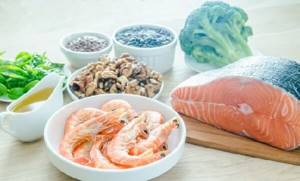
Onion
The product is very affordable and useful. And, in addition to the thyroid gland, it also benefits our liver and heart. The many useful components that are certainly present in it also strengthen our immunity, which also brings a big “plus” to the entire body as a whole.
5.Blueberries
You are unlikely to find more antioxidants than are contained in blueberries in any other berry. And, these substances do their job very well in eliminating hormonal imbalances that are possible in the functioning of our thyroid gland.
Any red fish
Commonly referred to as Omega-3 fatty acids, they are found in most types of red fish. For example, it could be salmon, trout with salmon, or, more affordable, pink salmon. Even a piece of red fish a day will give your thyroid gland the nutrients it needs for its coordinated work. So, eat red fish more often.
Nuts and honey
These products will make your lazy thyroid gland work fully. Take a mortar, knead 3-4 kernels extracted from walnuts in it, and add about a tablespoon of honey to them. You can get the maximum benefit from this delicious mixture if you eat it in the morning and on an empty stomach. You need to continue this “delicious” course for 1-2 weeks, and eat the specified amount of the product every day. You will find another healthy recipe, also with honey, here.
Lemon and honey
This is also a very useful combination for the thyroid gland, which activates its work well. Wash 2-3 lemons well and, without peeling them, grate them on a fine grater. As a result, you should end up with about a glass of this lemon mass. Add honey to it (in the same amount), mix, and take the resulting product according to the standard regimen - 3 times a day, a tablespoon in total, and take it during the intervals that we all have between meals .
And, in this video, you will be shown the three most useful products for thyroid health. Let's see.
Lack, deficiency, deficiency and excess of iodine in the body: signs in women and men
You may not even be aware of the lack of iodine in your body. More precisely, some symptoms do not cause much concern. After all, until the problem becomes obvious, you don’t often think about its initial stage. Although, in case of iodine deficiency, the first thing that should alert you is:
- memory impairment and general poor assimilation of information;
- general apathy and loss of any interest in what is happening;
- drowsiness and fatigue;
- absent-minded attention, forgetfulness and inability to focus on any given task or work. But this should not be confused with inattention;
- brittle nails and excessive hair loss (although often the cause may be hidden in other ailments);
- may manifest itself as hearing loss or the voice becomes hoarse.
- Excessive sweating and shortness of breath are other early signs of iodine deficiency.

Clear signs of iodine deficiency are:
- Swelling of the face and lower extremities. This is due to the fact that excess fluid is not removed from the body.
- Overall, the appearance deteriorates. Wrinkles appear, the skin becomes sluggish and stale. And also, signs of early aging appear.
- This is all accompanied by pain in the muscles and joints that cannot be eliminated with medication.
- In general, immunity decreases, and a person often begins to get sick with viral and colds.
- Also, one of the symptoms may be nausea or vomiting, as well as inability to digest foods.
- And, of course, an enlargement of the thyroid gland, which in medicine is called endemic goiter. But such a symptom can only be identified by a doctor.
- Important! Breastfeeding mothers may experience bleeding from their nipples, and their milk supply may decrease significantly.
By the way, you can conduct such a quick and very simple test at home. To carry it out, only one component is required:
- iodine
- cotton swab
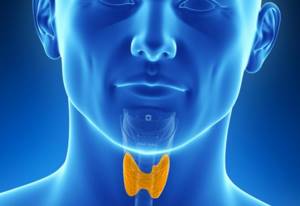
Making an iodine grid. It is advisable to draw it on the inner thigh or forearm.
- If the mesh has been preserved for more than 6 hours on your body, then the iodine content is fine
- If its stability lasted less than 6 hours, but more than three, then there is a slight lack of iodine
- If such a mesh disappears in less than 3 hours, then you should contact an endocrinologist
This test can also be done in a slightly different way. Apply three stripes to your forearm or inner thigh. This procedure should be done immediately before bedtime.
- If only one line has disappeared in the morning, then everything is fine
- If two, respectively, there is a slight shortage
- If all three, then there is a critical need for iodine
Products to include in your diet
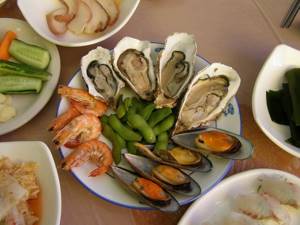
- iodine;
- calcium;
- protein;
- iron;
- zinc;
- tyrosine;
- vitamin E;
- antioxidants.
Iodine
This is the main component necessary for stable and efficient functioning of the thyroid gland. Deficiency of this element in the body is the main cause of thyroid disorders and the occurrence of diseases. Unfortunately, the population treats iodine consumption with disdain, naively believing that there is already enough of it in food. This general misconception has led to the fact that almost 7% of the world's population suffers from iodine deficiency. Treatment for iodine deficiency is not possible. And its deficiency can lead to irreparable developmental disorders, and even lead to cretinism. You will have to spend your honestly saved money on endless medical examinations and medications, and you will have to undergo a lot of procedures to restore damaged tissues and organs. Is it worth it? It is much easier and more painless to prevent iodine deficiency. The following products contain it: milk and dairy products, eggs and meat, fish, especially sea fish, vegetables and fruits.
Calcium
Iodine intake alone is not enough to prevent thyroid dysfunction
You should also pay attention to components that promote rapid absorption of iodine. Calcium does this job best.
Dairy products, cottage cheese, butter, fresh fruits, especially citrus fruits - these are not all helpers in this matter. In addition, the thyroid gland performs the function of regulating the amount of calcium in the blood. In case of deficiency of this element, the iron produces the hormone calcimine, which compensates for the difference. Otherwise, it produces hormones that destroy excess calcium.
Protein.
Daily consumption of this element has a beneficial effect on the entire body, the thyroid gland is no exception. Protein is responsible for cell growth and strengthening, and the absorption of iodine by the gland. The element is present in abundance in eggs, poultry meat, all types of fish and legumes. Dairy products are no exception. In addition, protein is the main element that promotes the synthesis of hormones inside the gland. He is, in a way, a catalyst for this process.
Iron
We should not forget about the mandatory daily addition to your diet: red meat, liver, vegetables, especially beets, radishes and tomatoes, fruits, namely plums, grapes and apples. Dairy products are also rich in iron. These products are not only not expensive, but also have a large supply of iron, which promotes the rapid absorption of iodine into the gland cells. Thanks to the gland, the thyroid gland “has time” to receive the daily requirement of the necessary components. In addition, iron strengthens the walls of the thyroid gland and prevents tumors.
Zinc
This element performs several equally important functions. Firstly, it promotes better absorption of iodine. Also, zinc promotes the release of thyroid hormone, which in turn stimulates cell regeneration and division. A lack of zinc in the body can lead to hypothyroidism, one of the thyroid diseases. However, zinc deficiency can lead to impaired immunity, which cannot be treated. Zinc is directly involved in the metabolic processes of the thyroid gland and also promotes the production of insulin. To avoid a deficiency of this element, you should increase your consumption of: seafood, preferably red meat, eggs, oysters, cereals such as buckwheat, oatmeal and wheat porridge.
Amino acid tyrosine
The release and synthesis of hormones is a chemical reaction that takes place inside the thyroid gland with the participation of all necessary elements. The catalyst for the production of hormones is the amino acid tyrosine. Without it, the release of hormones will not be possible. Tyrosine is not excreted by the human body, so you should carefully ensure that it is ingested with food. The following foods can boast the largest amount of the amino acid tyrosine: red meat and seafood, liver, all types of nuts, avocados. Exceeding the required dose of this amino acid will not lead to negative consequences, while a lack of tyrosine can cause significant disruption to the functioning of organs and tissues.
The biological role of iodine in the human body, the functioning of the thyroid gland, heart, brain: description
Everyone knows that iodine, as an element (more precisely, a trace element), is necessary for the normal development of the body. And it’s no secret to many that the iodine content should be normal. That is, its deficiency or, conversely, excess, can negatively affect the body.
- The thyroid gland plays a major role in this matter. More precisely, its nutrient for normal functioning is iodine.
- Let’s immediately find out that the human body’s iodine requirement is 20-50 mg. The thyroid gland itself contains 8-10 mg.
- Its role is difficult to overestimate, although the need for such an element does not appear in large quantities.
- Of course, iodine has a full impact on the work and development of the thyroid gland itself. And, unfortunately, our body does not produce such a microelement.
- All protein and fat metabolism largely depend on iodine content.
- It also regulates body temperature. More precisely, it increases it a little (but this creates the necessary balance).
- If we talk about the energy level, then it regulates the energy exchange itself.
- It has a positive effect on the body's need for oxygen and other vitamins.
- It is also responsible for the proper transportation of hormones and such an equally important element as sodium.
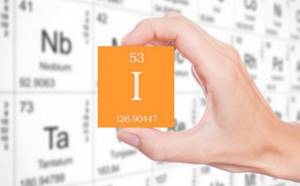
Its main task is the synthesis of hormones such as thyroxine and triiodothyronine. Let us remind you:
- It is thyroxine that acts as an activator of all metabolic processes, it controls the growth and development of the body, and also acts as the main factor in the development and proper differentiation of all cells of the human body.
- thyroid hormones have the same important role. In short, they have a significant influence on the growth and development of the body and its tissues, as well as on their differentiation.

Iodine directly affects the frequency, quantity and quality of heart contractions. And, in general, it has a great influence on the functioning of the cardiovascular system and on the activity of such an important organ as the liver.
- The water-salt balance is also influenced by iodine and completely depends on its content.
- In general, it affects brain function and strengthens our immunity.
- Many people probably know that iodine also stabilizes our nervous system.
- It also affects the normal development of our mental system.
- And, of course, the development of the brain and its activity (activity) is very closely related to the intake of iodine in the body.
- In short and in accessible language, iodine is necessary for the normal functioning of the thyroid gland, which produces certain hormones (we have already indicated them). And those, in turn, in one way or another influence the functioning, growth and development of our body.
